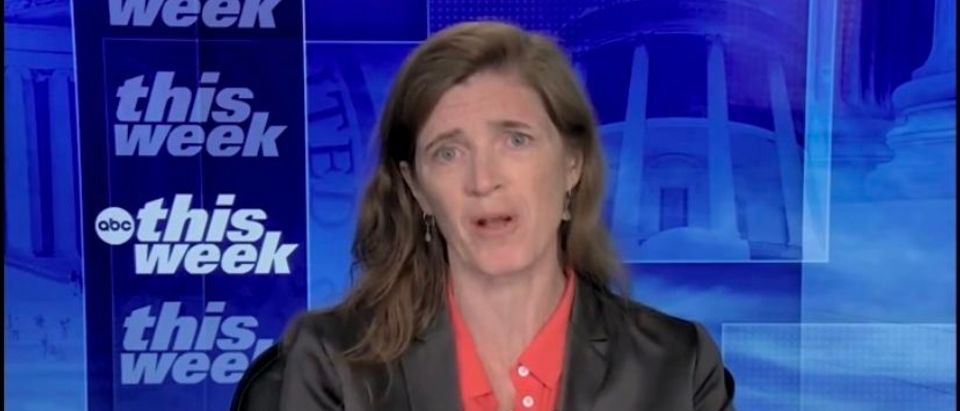U.S. Agency for International Development (USAID) Chief Samantha Power claimed on “This Week” Sunday that food shortages will push farmers toward green energy.
Power said food prices have increased 34% globally, prompting her agency to ask Congress for assistance in easing the food shortage crisis on a global scale. She said the agency is working with farmers across the globe to transition to “natural solutions” that are, according to her, in their best interest.
“We’re working with farmers to also increase their production so you actually have more supply brought on market. Fertilizer shortages are real now because Russia’s a big exporter of fertilizer, and even though fertilizer is not sanctioned, less fertilizer is coming out of Russia,” she said. “As a result, we’re working with countries to think about natural solutions like manure and compost, and this may hasten transitions that would have been in the interest of farmers to make eventually, anyway. So, never let a crisis go to waste.”
She then implored Congress to give her agency the necessary aid to meet emergency food needs to avoid the “cascading, deadly effects” facing nations dependent on Russia for agricultural needs. Russia and Ukraine are responsible for exporting over a quarter of the globe’s wheat supply, and Russia is the number one world supplier of wheat. Together, Ukraine and Russia accounted for 25.4% of the world’s wheat exports in 2019. (RELATED: Biden Scraps Green Fuel Rules In Bid To Slow Skyrocketing Gas Prices)
To prevent starvation, Ukraine temporarily banned exports of commodities like wheat and oats, hoping to preserve resources for their own population amid the Russian invasion. Russia has blocked shipping lanes in the Black Sea and Sea of Azov, causing an even larger exporting crisis.
President Joe Biden warned that food shortages are “gonna be real” during a March 24 speech, vowing that the U.S. will work alongside other nations to increase their supply of wheat and other essential commodities.
“With regard to food shortages, yes, we did talk about food shortages,” Biden said. “And it’s gonna be real. The price of these sanctions is not just imposed upon Russia. It’s imposed upon an awful lot of countries as well. Including European countries and our country as well.”
Dr. Cecilia Rouse, chair of the Council of Economic Advisors, said gas, energy and food prices are all expected to continue increasing due to sanctions and the surging price of fertilizer during a March 28 press conference. She noted, however, that food prices are not expected to rise in the U.S. since the nation is a net exporter, but noted that the U.S. is working with allies to “minimize the impacts” on nations heavily relying on Russia and Ukraine for their food supply.


